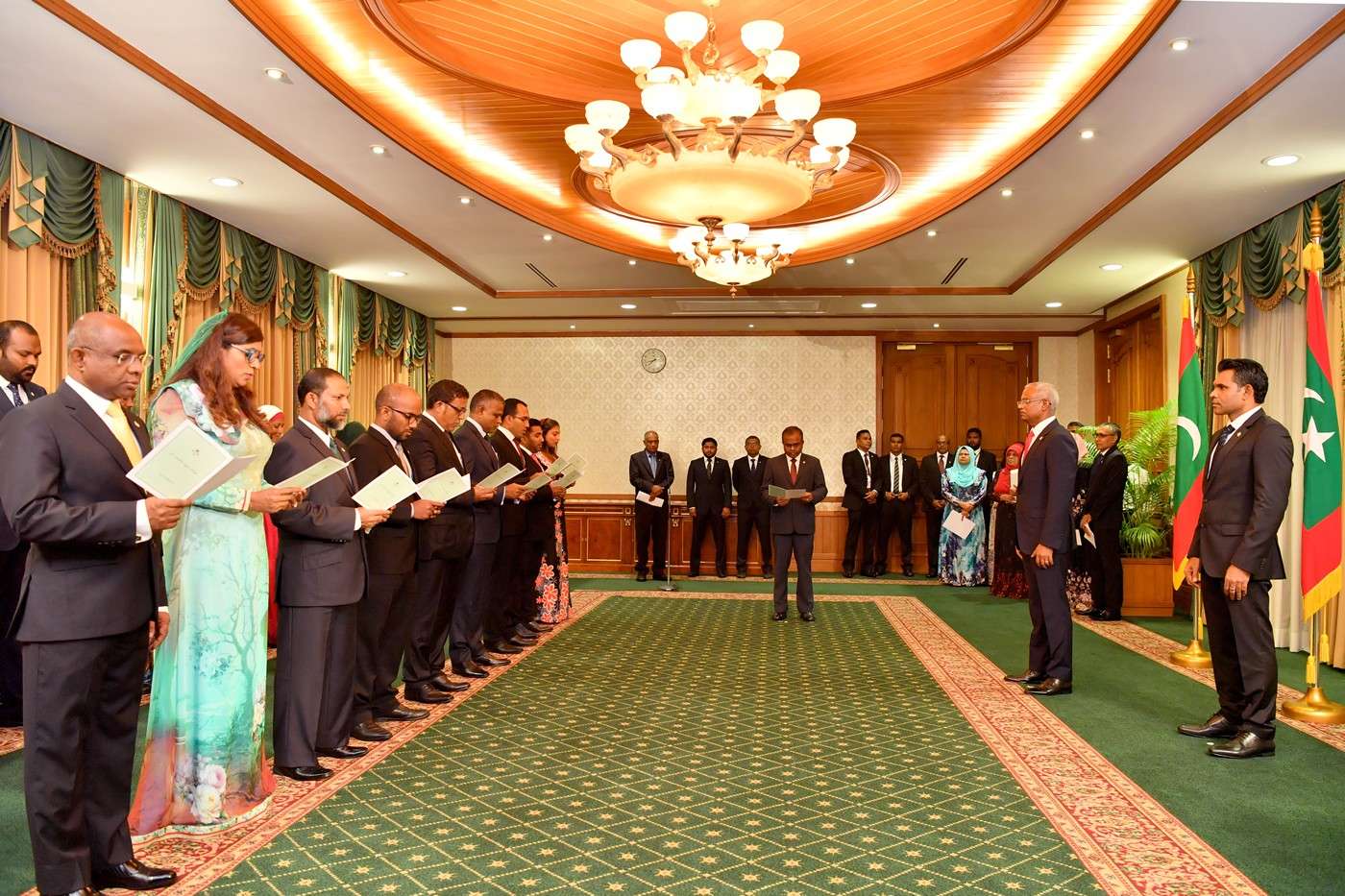Jobs for activists raises questions over political appointments
The Solih administration has also been accused of nepotism.

27 Mar 2019, 09:00
Political appointments of President Ibrahim Mohamed Solih’s administration have come under fire as activists of coalition parties and family members of top officials continue to be chosen for senior government posts.
At least three people were appointed this week to new positions created under the title ‘Policy Director,’ prompting questions over whether they were selected based on merit.
According to media reports, Ahmed Irash was appointed the policy director at the ministry of youth, sports and community engagement, actor Ahmed Azmeel was appointed executive director of the National Center for the Arts, and Maldivian Democratic Party activist Mohamed Maumoon was appointed the executive director at the ministry of housing and urban development.
They were the first of 31 appointments at the policy director level, Mihaaru reported.
Become a member
Get full access to our archive and personalise your experience.
Already a member?
Discussion
No comments yet. Be the first to share your thoughts!
No comments yet. Be the first to join the conversation!
Join the Conversation
Sign in to share your thoughts under an alias and take part in the discussion. Independent journalism thrives on open, respectful debate — your voice matters.




